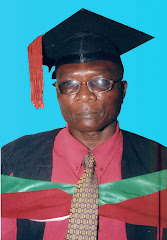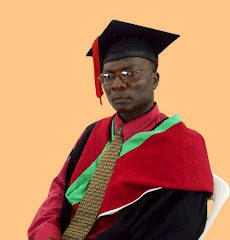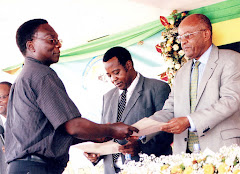Friday, November 27, 2015
Tough homework for tour operators as marketing goes online
WITH tourists increasingly preferring to
shop for tour packages online, Tanzanian tour operators find themselves faced
with an uphill but inevitable task of adapting to online marketing techniques.
The most important global trend in marketing is the changing of consumers’
shopping behaviour towards heavy use of online marketing tools and online
sources of information and reservation systems, notes Devota Mdachi, Acting
Director General of Tanzania Tourist Board. This trend necessitates tourism
related businesses in the supply side to be competent computer literate in
particular the use of internet, development of catchy website contents and
regular updating of the contents. Tanzania has over 200 tour operators
registered under the Tanzania Association of Tour Operators (TATO) based in
Arusha. They compete in the market to cater for some 1.2 million tourists
arriving annually, according to latest official statistics. Tour operators
seriously realise the importance of online marketing. “There is no question that
online marketing is currently the leading way of getting tourists from abroad,”
notes Mishely Ivan, Operations Manager for Dar es Salaam based White Lion Tours
Ltd, one of the fastest growing tour companies in the country. Keen to move
with time, the TTB has just launched an ambitious strategy to market
Destination Tanzania. In collaboration with private sector through Tourism
Confederation of Tanzania (TCT) the board has developed a new five year
International Marketing Strategy that focuses on a few selected markets and
highlights use of the information superhighway. Says Mdachi on the strategy:
“It highlights the use of digital and online marketing techniques which have
been given high importance.” But how fast are tour operators in Tanzania
evolving in order to use the latest and most effective techniques in the online
marketing era? Not fast enough, at least according to the TTB official. Notes
Mdachi: “For sure, the majority of tour operators are less competent in
adapting to this global consumers trend.” But there is a catch to this. Like in
many distribution channels for service and product delivery, the middleman is
well-established in the tourism business, to a large extent screening off local
tour operators from directly accessing to tourists abroad. International
tourism marketing business is monopolised by a vast network of multinational
tour agents, big companies with extensive global networks. According to Ivan,
the agents promote themselves extensively in Europe and America, the leading
sources of tourists jetting into Tanzania. “Foreign tourism agents for instance
in the Netherlands have access to extensive TV coverage where they advertise
for up to seven times a day”, he says. Ivan points out that a good website is
essential, but notes that it is not enough. “After designing a good website,
the website must be advertised on TV.
You don’t just design a website and wait
for tourists to log on to it. However good it is, if it is not aggressively
promoted no tourists will even know about it, let alone visit it.” He notes
that expertise in websites is needed. Yet to get a very good design cost up to
two thousand dollars, “It should be the best website,” he notes, although he
instantly says two thousand dollars is expensive for small tour operators. Ivan
continues: “The foreign tour agents don’t advertise us in any way, they simply
promote themselves as the gateways to the preferred destinations. After getting
the customers and closing the deals they forward them to tour operators in
Tanzania and elsewhere.” Ivan notes that it is a great challenge for tour
operators in Tanzania, because they don’t have direct access to the tourists.
Despite it being difficult to have direct contacts, the truth is that all
successful companies in Tanzania have tour agents abroad. To advertise online
one must go to Europe, and hook up with TV and radio stations. “Then you need
to pay a lot of money to have a lot of adverts, and you can only do so that by
purchasing a large airtime package.” This situation, he notes, necessitates
tour operators to have a very large capital. The situation is made complex by
the fact that most Europeans prefer to shop online from domestic agents,
because first they feel very secure and second for the very reason that they
feel comfortable when contacting someone they feel are closer to them. Says
Ivan: “That is where the biggest marketing challenge lies, most of the tourists
don’t shop online straight from us. It is very rare to find a tourist who logs
into a website and charts direct with a tour operator in Tanzania.” From his
experience, he says over 70 per cent of the deals are closed through agents.
However, this online marketing challenge affects mostly smaller companies,
which cannot raise the large capital needed for traveling and advertising. This
has crated a sort of divide among the tour operators in country. Says Ivan:
“You find that automatically, Tanzanian tour operators are divided into two:
the big companies that rake in huge profits and the smaller companies that
struggle to survive.” And there is a trickier twist to the middleman’s affair
with online tourism marketing. Bigger and well established tour operators in
Tanzania who are connected to international agents get discounted accommodation
rates form some hotels. As a result of this arrangement, which in tourism
circles is dubbed ‘contract pricing’, they are able to quote lower prices in
their packages and enjoy competitive advantages. “We cannot compete with them
because our packages that we send to agents will be dearer,” says Ivan, noting
that in some case the price differential is s large as USD 60. He notes that
accommodation is the crucial component in tour package pricing, because other
charges like transport are relatively uniform across the board. Pack and
camping fees, which are paid to Tanzania National Park, are fixed. It is
debatable if contract pricing here amounts to unfair competition. The big tour
operators get discount by the virtue of the large number of tourists they take
to the hotels. The large number of hotel reservation is a fruit of connections
to tour agents and advertising, which themselves were shouldered by a larger
capital base.
SOURCE:
Daily News
Magufuli vows to combat drug barons
PRESIDENT John Magufuli on Wednesday this wee declared a serious battle against drug abuse and corruption in the country, promising to establish a special court for the corrupt and embezzlers of public resources. I know the difficulties ahead because the war I am getting myself into is against powerful people. I need the support of the Parliament and all Tanzanians to win,” said Dr Magufuli in his speech to inaugurate the 11th Parliament on Friday this week. He said his fight against drugs will not focus on drug peddlers, but it will instead go for the drug barons who finance the business that has adverse impacts on particularly the young on whom the future of the nation relies. President Magufuli said there was nothing that Tanzanians hate most like corruption and that they are not ready to tolerate the government that embraces bribery. He said although his party, Chama Cha Mapinduzi (CCM) denounces corruption, “I am not quite sure if today members within CCM don’t give and take bribes.” “I have decided to form the special court to handle corruption and embezzlement cases. And let me warn people whom I will appoint to various posts, I will fire you outright and hand you to prosecuting agencies if I find you engaging in corruption,” he said. The president decried sabotage in delivery of public services, citing employees of Tanzania Electric Supply Company (Tanesco) whom he accused of reducing water in dams to serve the interest of businesspeople who supply generators and oil to the power utility. “I know all about the sabotage at Mtera dam. Water is always below the required level for power generation because you release the water at night to help the business of people who bribe you. "We will deal with you … and I say I will personally deal with you,” said the president. He asked Members of Parliament (MPs) to accept the government amendments on the public procurement act, which he described as a serious problem in public procurement. “… that Act is a menace.
Tanzania's Newly elected President of the 5th phase, John Magufuli
We must amend it soon and please cooperate fully when it is brought here for amendments,” he said. Dr Magufuli maintained his stance on foreign travel, saying even where there is a pressing need for travel, only a few officials will be allowed. “Instead of sending people abroad for training, why don’t you bring the trainers here,” he queried, sending the House into laughter. He described as wastage of resources the 356bn/- that the government spent between 2013/14 and 2014/15 fiscal years on foreign trips, with Parliament, Ministries of Foreign Affairs, Finance, Home Affairs, the Prime Minister’s Office and National Audit Office of Tanzania (NAOT) as the top spenders on overseas travel. Out of the money, 183bn/-, 104bn/- and 68bn/- was spent on air tickets, per Diems and training, respectively. “The 356bn/- that was spent on foreign trips could have constructed over 400 kilometres of tarmac road and imagine how many dispensaries, school desks for pupils and medicines could have been bought,” said President Magufuli. He also censured unjustified government expenditures on vehicles, querying the logic behind an engineer using the posh V8 car instead of a pickup to the project site.
Up to 800 affordable houses for civil servants under construction
Construction
of eight hundred low cost modern houses for civil servants has started across
four regions in the country which includes Dar es Salaam, Morogoro, Tanga and
Mwanza. The projects are funded by the Public Pension Funds (PPF) and managed
by the Watumishi Housing Company (WHC) which aims at providing a lasting
solution to persisting lack of accommodation for public servants be in active
service or retired. Announcement of the project commencement was made yesterday
in Dar es Salaam by the WHC Chief Executive Officer, Dr Fred Msemwa who
detailed the number of houses, with the regions in brackets, as follows Mwanza
(56) to be built in Kisesa township, Tanga (40), Morogoro (40) while Dar es
Salaam will have the lion share of housing units to be built in Kigamboni
(400), Bunju (190) and Magomeni Usalama (104). “We have sped up the
projects...it was supposed to be done some years back given the severity of the
problem ....we must afford descent accommodation for our public servants both
in-service and retired,” he said. He said the project is as per a promise
made by former President Jakaya Kikwete’s desire to fulfill his dream promise
of empowering public servants with their own houses as opposed to rented ones. Dr
Msemwa singled out the Magomeni Usalama project where a double tower building
of 15 floors each will be set up saying the building when complete will
transform Magomeni completely. “The double towers mini-skyscraper of 15
floors is being built in strict adherence to modern city standards,” he
reassured stakeholders. “All key services such as shops, car parking
arcade and other human social requirements have been considered,” he said. On
the Kigamboni and Bunju B projects, the WHC Chief said they are both multi-billion
projects and will contribute in turning Dar es Salaam into one of the fast
growing cities with superb structures the likes of those in Africa, Europe or
North America. He said after Dar es Salaam, Tanga and Mwanza regions in the
near future will follow Dodoma, Ruvuma, Mtwara, Mbeya, Kigoma, Mwanza,
Shinyanga, Arusha, Tanga, Lindi and Coast regions. “In Kibaha Township in the
Coast Region, WHC is all undertaking a multi-billion project to set up 1,000
housing units in what will be a satellite town,” he added. Prior to launching
the 800 housing units’ construction drive, WHC had earlier launched a project
to construct 40 housing units at Mkundi few kilometres outside the Morogoro
Municipal. Established in 2013, WHC is primarily a fund manager for the
Public Servants Housing Scheme by the way of operating the Real Estate
Investment Trusts (WHC- REITs’) which do operate like any other investment in
shares. To clear the way for public servants to purchase the affordable
yet durable and descent houses under WHC, the outfit has signed
transactions agreements with 5 commercial banks in the names of CRDB, Azania,
NMB, Bank of Africa (BoA) and Exim Bank.
SOURCE:
THE GUARDIAN
Hotels now to feel Magufuli' s austerity pinch
The
hospitality and catering industry is expected to take a hard hit following
President John Magufuli’s ban of public servants’ meetings and conference from
hotels and other rental venues. According to sources and analysts
interviewed by this paper yesterday, hotel owners and caterers stand to lose
billions of shillings because they will be forced to solely depend on corporate
events whose number is very small compared to that of civil servants’
meetings. A Dar es Salaam-based analyst, Antipas Massawe said owners of
conference facilities and hotels will feel the pinch because their most
frequent customers are ministries and government institutions. However, it is
also his opinion that the most of the hospitality and catering businesses are
also owned by government officials. Opting anonymity an industry stakeholder
said hotel owners should now think of alternative ways to sustain their
conference businesses. He suggested they promote their conference
facilities outside the country to attract foreign entities to conduct their
meetings in Tanzania. “Apart from government ministries and institutions
there is a variety of customers including donors, Non Governmental
Organisations (NGOs) and international organisations who also use these
facilities,” he said. On her part, Travel Consultant Elisha Mayallah said the
conference business in hotels is one of the high-income bringers.
Mayallah went
on to express mixed feelings over the ban saying while the move will hurt the
industry it will nonetheless cut government spending. “I only hope this is a
temporary decision until the government’s financial situation improves,” she
said hopefully and cautioned that should the ban persist then it would worsen
the unemployment plight of youth since most facilities will move to cut down
expenses by reducing staff. On Wednesday this week, President John Magufuli
ordered cancellation of meetings and conferences in hotels for public
servants in a bid to control unnecessary public expenditure. Instead, now the meetings
and conferences will be conducted via video conference that allows persons in
two or more locations to communicate simultaneous via two-way video and audio
transmissions. The government said the facility will also be free of charge for
government users. Speaking at the time, Spokesperson in the President’s Office
(Public Service Management), Florence Temba said the directive is meant to cut
unnecessary costs that the government incurs in meetings and conferences held
at rental places. The ban came but days after the Head of State banned public
servants’ foreign trips and the hefty allowances that go with them.
Few Tanzanians benefits from tap water - report
Only
one in three Tanzanians has access to piped water this despite grand National
and International development plans like the Big Results Now and the just ended
Millennium Development Goals respectively. According to a research titled ‘Half
empty or half full?’ that was conducted by Twaweza inquiring as to citizens’
views when it comes to access to clean water, just one out of three citizens
(36 per cent) said they have access to piped water. The research also shows
that 35 per cent of wananchi still rely on wells while 18 per cent depend on
surface water, both being generally less hygienic sources of the precious
liquid. “The difference between urban and rural areas is significant with half
of urban residents (51 per cent) having access to piped water on their premises
compared to only 11 per cent of their rural counterparts,” the report reads in
part. “Overall only 41 per cent of rural residents have access to any
kind of improved water source as compared to 69 per cent of citizens in urban
areas,” it details. The findings are based on data collected from 1,852
respondents across Mainland Tanzania between 9 and 26 September 2015 through
mobile phone survey. The study also found that close to half (44 per cent) of
citizens spend over 30 minutes collecting water for their day today needs this
despite the fact that government recommends no more than half an hour be
spent in fetching water. In general, the survey found that citizens
experience a range of issues in accessing water, with significant differences in
the experiences of rural and urban communities. Rural residents emphasise
the distance to water points (47 per cent) and dirtiness of the water (40 per
cent), while urban residents are troubled by irregular supply (43 per cent) and
cost (40 per cent). “In both urban and rural areas, around one out of
three citizens cite the lack of water points as a major challenge,” the report
also revealed. It goes on to unveil that only a little over half of Tanzanians
(57 per cent) report doing something to make their drinking water safe. The
majority saying they boil water (85 per cent). Other popular alternatives
are straining (69 per cent) or letting the water stand and settle (38%), but
these are not considered by international standards to be acceptable methods of
water treatment. “Unsurprisingly, 65 per cent of citizens see access to clean
water as a major challenge facing their community. Despite two years of the Big
Results Now initiative, most citizens (80 per cent) report seeing no change in
the water sector over the past two years,” the report reads. “The saying goes,
water is life...sadly for too many Tanzanians, water can actually be deadly,”
commented Executive Director of Twaweza Aidan Eyakuze. “Years of data
have shown us that merely increasing resources does not improve access to safe,
clean water,” Eyakuze went on to say. “As the new government begins its work,
we have a unique opportunity to radically review our strategies in the water
sector,” he said and went on to admit that providing every citizen with water
in a sparsely populated, large country such as Tanzania is particularly
challenging. “But there is no escaping the need to reach every citizen
with this vital service,” he cautioned. “So, we have no choice but to
think quickly and creatively to guarantee citizens’ basic right of access to
clean and safe water,” the Executive Director summed up.
Subscribe to:
Posts (Atom)












